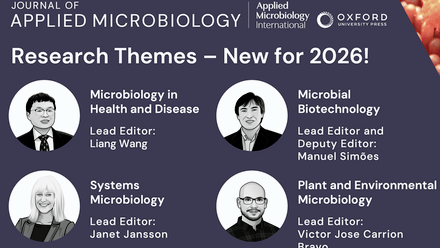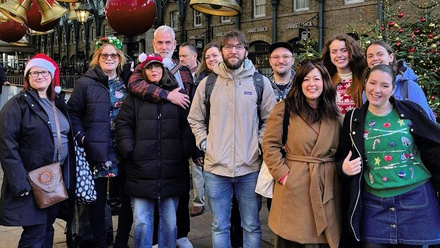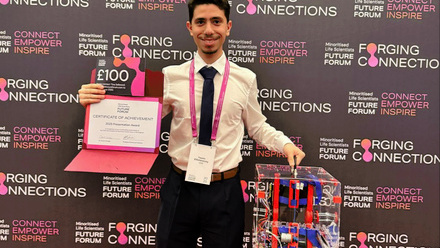‘It’s been an eye-opener’: Thomas Thompson on his year as a Junior Editor

One year into our first Junior Editor training programme with Letters in Applied Microbiology, Dr Thomas Thompson of Queen’s University Belfast tells us how he is getting on.
Last year, Applied Microbiology International appointed 14 junior editors to its flagship journal Letters in Applied Microbiology (LAM) - selected from more than 100 applicants by the Editor-in-Chief, Dr Marcela Hernández.
Letters in Applied Microbiology has a focus on early career researchers to support and develop the next generation of applied microbiologists.
The junior editors, early careers researchers within six years of completing a PhD, work with senior editors as mentors for two years to learn how to handle papers through all stages of the peer review process, while upholding high ethical standards and striving to give all authors the best experience in their interactions with the journal.
Tell me about your background and research.
I’m a qualified pharmacist, which means my research has always had a strong translational focus. My work spans antimicrobial resistance and biofilms, where I’ve been developing cold plasma technology as an adjunct therapy to enhance antibiotic efficacy. I’m particularly focused on biofilm eradication in clinical environments—something that’s been a critical challenge in healthcare.
What attracted you to the role of junior editor?
As a pharmacist and researcher, I’ve always been keenly aware of the gap between cutting-edge science and real-world healthcare applications. Becoming a junior editor was an opportunity to ensure high-quality research is communicated clearly and accessibly, so it can have a genuine impact.
What have you learned in the role?
The role has been a hands-on experience in shaping how complex scientific ideas are communicated to a broader audience. From assessing manuscripts to making key editorial decisions, I’ve gained a deeper understanding of how to ensure research remains accessible without compromising rigor.
It’s also pushed me to think critically about the impact of the work we publish, ensuring that it serves both scientific progress and practical applications.
What surprised you most about the experience?
I have been most surprised by the sheer variety of topics I have encountered. Microbiology is such a vast field, and the breadth of work we assess has exposed me to areas I wouldn’t have typically engaged with in my own research. It’s been an eye-opener in terms of the diversity and interdisciplinarity within the field, which is something I hadn’t fully appreciated until I was in this role.
What is the best way to make the most of the experience?
Treat it like a masterclass in communication. The best way to make the most of this experience is to dive into the content with the mindset of a scientist and a communicator. Ask yourself not just ‘what is this paper saying?’ but also ‘how can this be said better, more clearly, or with more impact?’
What would you say to someone who is considering applying?
If you’re serious about science communication and want to develop a skill set that goes beyond the lab, this role is for you. It challenges you to think critically about how research is presented and what makes it impactful. Beyond sharpening your editing skills, it broadens your understanding of the field and your professional network in ways that can directly benefit your career.
What opportunities has it opened up for you?
It’s opened up several unexpected doors. First, the editorial experience has refined my critical thinking in ways that have improved both my writing and my approach to lab work. I’ve also built connections with experts across microbiology and adjacent fields, which has been invaluable for potential future collaborations. Perhaps most importantly, it’s given me confidence in navigating the intersection of research and publishing, which is vital for advancing any scientific career.
AMI will be advertising for the next cohort of Junior Editors in 2025. Sign up to AMI’s publishing mailing list for regular updates.



